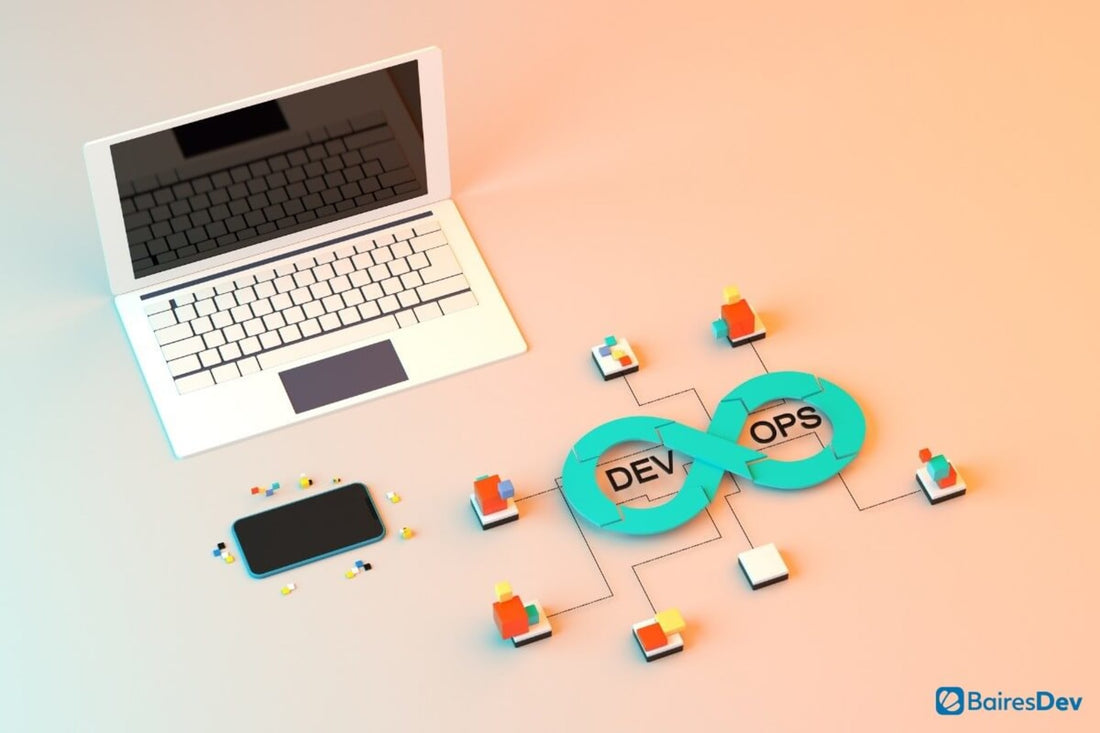DevOps is trendy, but it's not the ideal solution for every company. And you?

The tech industry loves its buzzwords. It seems like every day there is a new buzzword created by combining two technologies to form a solution to a problem that may or may not exist. But some of these buzzwords perfectly capture the zeitgeist of the current technology landscape.
One such buzzword is DevOps , which has taken the IT world by storm. This keyword has become so popular that most companies (at least those with IT departments) have already implemented it or are considering it in the near future.
But is DevOps right for your company? After all, that's the most important question you should ask before considering adding it to the mix.
What is DevOps?
Simply put, DevOps merges development and operations to shorten the software/systems development lifecycle and provide continuous software delivery .
This definition raises another question.
What is continuous delivery?
Continuous delivery is a software development approach that is released in short cycles to ensure that software can be released reliably at any time. This approach to the software development lifecycle relies heavily on automation, as the goal should be instantaneous and reliable releases. Without built-in automation, continuous delivery would not be possible.
So right off the bat, we see that DevOps is centered around a very fast and reliable software release cycle that requires automation to be successful.
The image should be significantly brighter at this point.
But let's keep digging.
The cost of DevOps
One thing to keep in mind when considering whether DevOps is right for your company is the cost involved. Yes, once embedded into your company's culture and systems, a DevOps approach can eventually save money (because software deployment becomes nearly automatic and considerably more reliable). But the money you will have to spend upfront can be considerable.
Why?
Training.
Continuous software delivery is challenging to set up, get right, and maintain. This means you will need to hire an IT team capable of implementing this new strategy. You'll need developers and operations administrators who know the tools of the continuous delivery trade, such as Maven , Jenkins , Puppet, Nexus, Fabric, JIRA, Jmeter, and git. And since there's no single tool that makes CD possible, that means you'll have to bring together multiple software titles and systems to perfectly suit your needs.
Therefore, it is not just about having personnel capable of implementing such a system, it is also necessary to have people on hand capable of planning and designing such a system. The cost for this to happen can be considerable. The only positive is that much of the software is open source, so you won't have to suffer too much with your budget in this area.
In fact, it's about having the right team capable of putting together this complicated system.
The DevOps culture
Next, we have to look at the culture of DevOps itself. The idea behind this approach is that your development and operations teams are able to successfully collaborate together to make this happen. To do this, you need to evaluate these two teams and honestly answer the question: “Can they work together successfully?”
This may seem like a silly question to ask. After all, these people are in service to your company, so shouldn't they, by definition, be able to work together? While on the surface you may think so, you may need to dig deeper. Egos can get in the way of a successful DevOps approach.
Before you decide to implement DevOps, you can first test these departments to see how capable they are of collaboration. Ask them to design and build a new application or system. If they can work together seamlessly, you're already ahead of the DevOps game. If, however, the testing project doesn't come to fruition, you'll have to retool your teams or forget about DevOps altogether.
How do you use the software?
Ask yourself this question: How do you use the software? If your company relies on software to innovate and remain competitive and agile, DevOps is probably exactly what you're looking for. If you depend on software to power your business and want that software to be continually updated and reliable, again, DevOps may be the best approach.
However, if the software is a product you sell and the traditional development lifecycle works for your business, DevOps may not be necessary. Or, if you primarily use third-party software to power your business, DevOps probably won't do you much good.
Conclusion
Ultimately, DevOps helps companies that rely on software empower them with speed, efficiency, reliability, security, and agility. DevOps can help improve workplace productivity, create space for innovation, increase customer satisfaction, improve the quality of the software you use, and increase IT security. If these are goals you'd like your company to achieve and you already rely on software to make that happen, if you haven't added DevOps to the mix, you're not making the most of your software development lifecycle.
If you liked this, be sure to check out our other DevOps articles.
- Is it time for decentralized IT?
- Why Businesses Are Moving to 'IT as a Service'
- What your developers need to know before they start working with Kubernetes
- What is website reliability engineering and how can it positively impact DevOps?
- How to accelerate software development by adopting the DevOps culture




















































